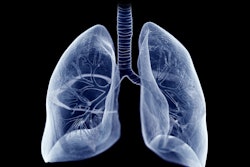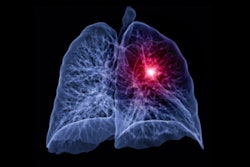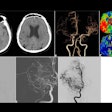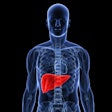Individuals who use e-cigarettes are less likely to undergo lung cancer screening (LCS), researchers have reported.
A team led by Qian Wang, MD, of University Hospitals Seidman Cancer Center in Cleveland, found that, after adjusting for comorbidities (coronary heart disease or myocardial infarction, stroke, asthma, chronic obstructive pulmonary disease, chronic kidney disease, diabetes, and arthritis), this population has 21% lower odds of participating in low-dose CT (LDCT) LCS compared to those who never used e-cigarettes. Their results were published July 2 in JAMA Network Open.
"Emerging research suggests that e-cigarettes contain definite and probable carcinogens and cause similar cancer associated gene deregulations as combustible tobacco," the group noted. "However, it has been shown that two-thirds of individuals currently using e-cigarettes consider e-cigarettes to be less harmful than combustible cigarettes. Thus, individuals who use e-cigarettes may have lower awareness of lung cancer risks."
Electronic cigarettes entered the market in 2007, and, as of 2021, had become the second most used tobacco product among American adults, the group noted. They've been touted as smoking cessation aids, but concerns about their potential long-term cancer risk continue.
During the time that the use of e-cigarettes has increased, the U.S. Preventive Services Task Force (USPSTF) has made two revisions to its LCS recommendation. In 2021, the task force expanded the pool of eligible individuals by lowering the screening start age from 55 to 50 and smoking pack years from 30 to 20. Uptake of this screening exam has increased, but remains low, and the association between e-cigarette use and LCS is unclear.
Wang and colleagues investigated any links between the use of electronic cigarettes and LCS via a study that followed the Strengthening the Reporting of Observational Studies in Epidemiology (STROBE) reporting guideline and included data from 22,713 individuals eligible for screening according to the USPSTF's 2021 guidance culled from the 2022 Behavioral Risk Factor Surveillance System (BRFSS); the team compared baseline demographic factors between individuals who received LCS and those who did not. Of the study cohort, most were white (77.7%), 26.7% underwent lung cancer screening, and 14.6% were current with LCS testing.
As for overall demographics, people who underwent LCS tended to be older, with lower income, comorbidities, and poor general health. They also had a higher pack-year of smoking, had recently quit smoking (among those who previously used cigarettes), had attempted to quit in the past year (among those who currently smoked), and were more likely to report never using e-cigarettes compared with individuals who did not undergo LCS.
But when it came to assessing LCS uptake among e-cigarette users, the team found that this group had 21% lower odds of having undergone LCS (odds ratio [OR], 0.79, with 1 as reference) compared to counterparts who only smoked traditional cigarettes. It also reported that individuals currently using e-cigarettes had 33% lower odds of being current with LCS protocol (OR, 0.67).
The results underscore a need for more education among e-cigarette users about lung cancer risk, according to Wang and colleagues.
"Our results [highlight] the importance of raising awareness and rectifying misconceptions of e-cigarette use," they concluded.
"Former smokers who use e-cigarettes remain at increased risk of lung cancer and should be targeted by interventions to improve adherence to LCS."
The complete study can be found here.




















